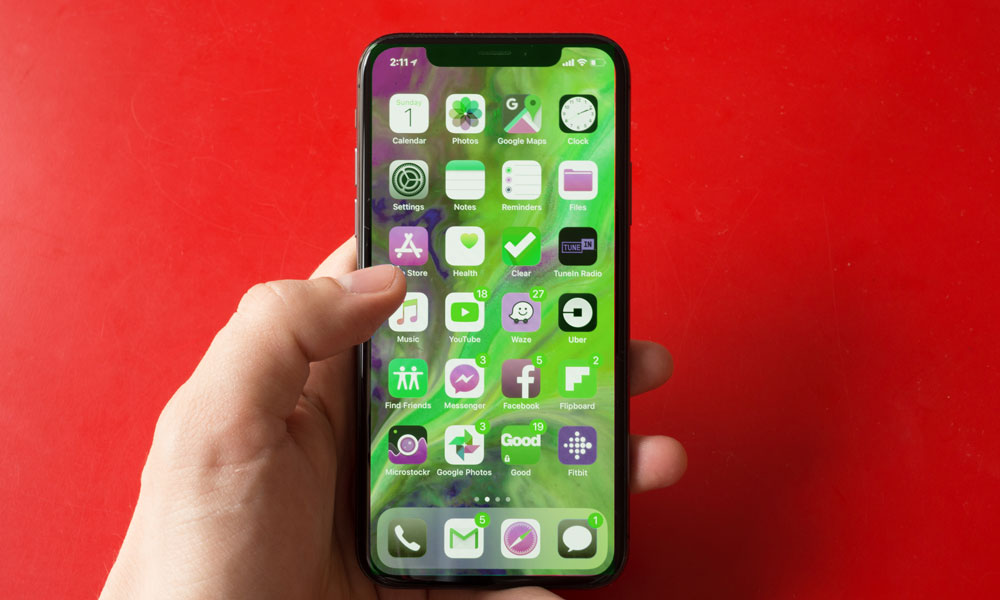Apple Releases iOS 13.6.1 to Fix Green Screen Tint Issue
 Credit: Dedi Grigoroiu / Shutterstock
Credit: Dedi Grigoroiu / Shutterstock
Toggle Dark Mode
The journey through the era of iOS 13 isn’t quite over yet, as Apple has just released a series of minor updates for the iPhone, iPad, and Mac to address a few bugs prior to the bigger iOS/iPadOS 14 and macOS Big Sur updates coming this fall.
Specifically, iOS 13.6.1, released yesterday, most notably fixes the “green tint” issue that many iPhone 11 and iPhone 11 Pro users were encountering. While it wasn’t clear what was causing the problem, most believed it was a software problem related to the True Tone display and its colour matching algorithms, particularly since for many it only began after updating to iOS 13.4 or iOS 13.4.1. Oddly, it wasn’t just iPhones that were encountering this issue, although it’s unlikely to be anything more than just a funny coincidence.
While this wasn’t a hugely widespread problem to begin with, and it only showed up when users first unlocked their device, correcting itself a second or two later, it looks like Apple has addressed it in iOS 13.6.1, with the release notes not only indicating that it’s been fixed, but also offering a bit of insight into what was causing the problem in the first place: a “thermal management issue.”
Apple doesn’t go into any more detail than that, so it’s difficult to know exactly what that means, but ultimately it probably doesn’t matter as long as it’s working properly now, and if you’ve run into the problem at least you no longer need to worry that it was a hardware issue.
The iOS 13.6.1 release also addresses some problems related to the Exposure Notification system, which Apple is obviously still tweaking, having only enabled it in the iOS 14 public beta last week. Both iOS 13.6.1 and iPadOS 13.6.1 also fix a problem that may have had some users’ devices needlessly filling up with system data files.
With iOS 14 just around the corner, these are likely the last updates we’ll see for iOS 13, although all of the devices that are capable of running iOS 13 will also be compatible with iOS 14, so you don’t need to worry about being left behind. This also means that unlike iOS 12, which has seen seven more minor updates since the release of iOS 13 last fall, there’s really no reason for Apple to issue any more updates for iOS 13 for older devices, since they can all simply be upgraded to iOS 14 instead.
In fact, what’s interesting is that while iOS 13 currently holds the record for the most “point” releases of any iOS version — making it all the way up to iOS 13.6 — it’s actually iOS 12 that still holds the crown for the most updates overall, with 20 released in total, as opposed to only 17 updates for iOS 13. Part of this is due to Apple’s choice to release more of its updates as full point releases, but to be fair, iOS 12 had only received 13 updates before iOS 13 arrived last fall.
macOS Catalina
In addition, Apple has also released a “Supplemental Update” to macOS Catalina 10.15.6, and while this doesn’t actually bump any of the version numbers, it does fix a problem that could cause apps like VMware and Parallels to crash, along with a fix for a minor display problem with Apple’s new 2020 iMac that could cause the screen to look washed out when waking up from sleep.
While both VMware and Parallels normally release new versions of their virtualization apps each year to correspond with major macOS updates, in many cases older versions have still been supported. However, this will not be the case when Big Sur arrives later this year; Catalina will be the last version of macOS to be supported by the current versions of VMware and Parallels, as Big Sur removes support for kernel extensions which these virtualization apps have traditionally relied on.
To be clear, you’ll still be able to use virtualization apps on Big Sur (at least on Intel-based Macs), but you’ll definitely have to upgrade to the newest Big Sur compatible versions; Parallels has already released Parallels Desktop 16, while VMware has a “technology preview” of VMware Fusion 12 available, both of which can already be run on the current macOS Big Sur Public betas.






